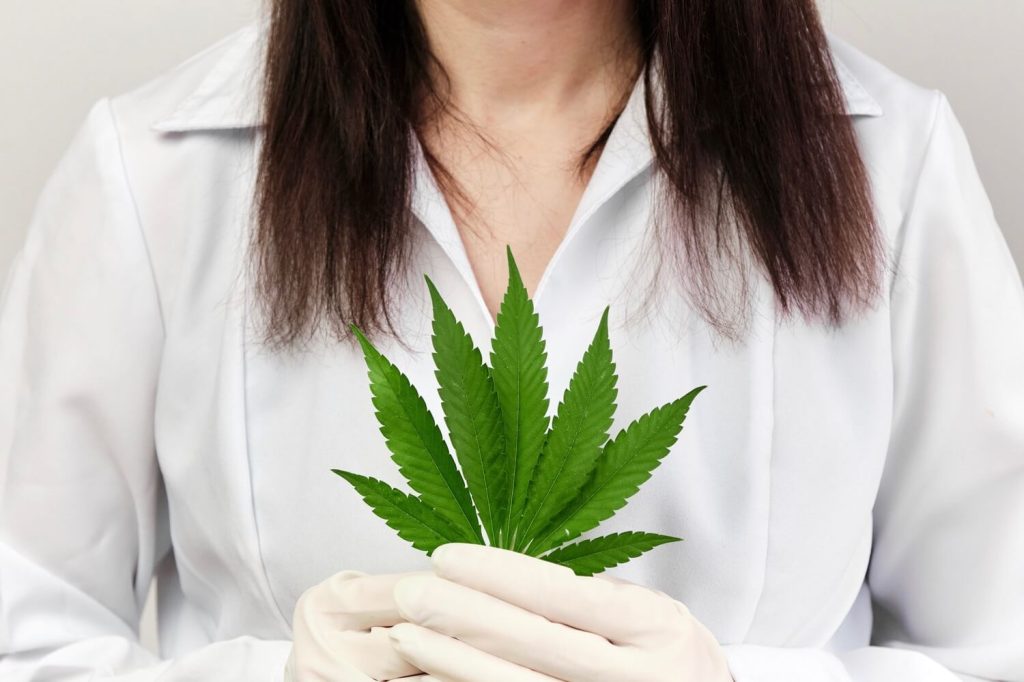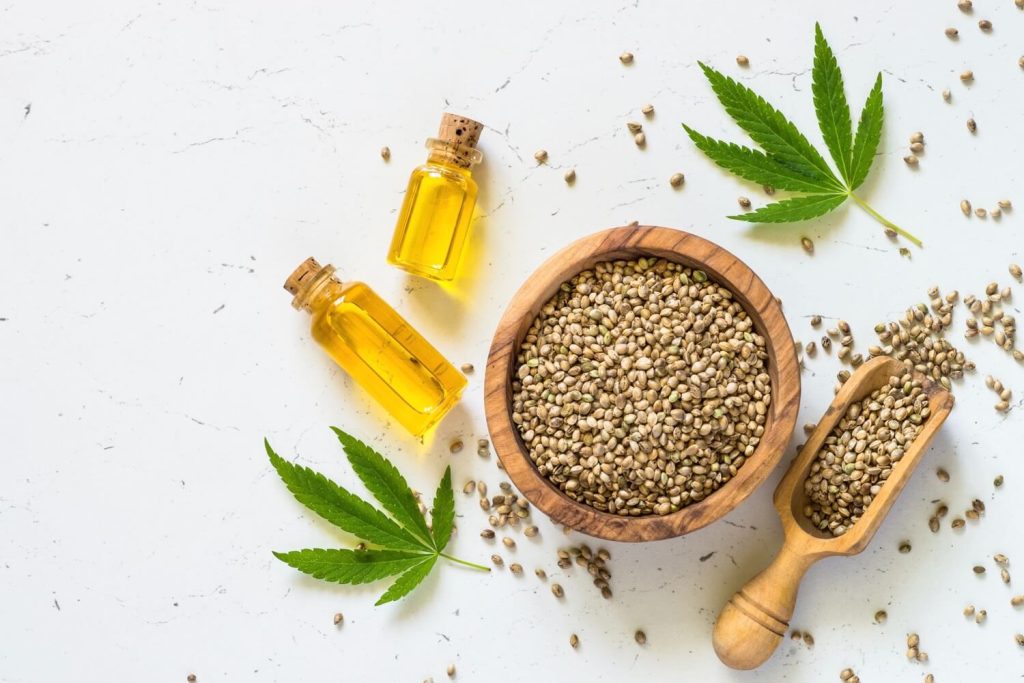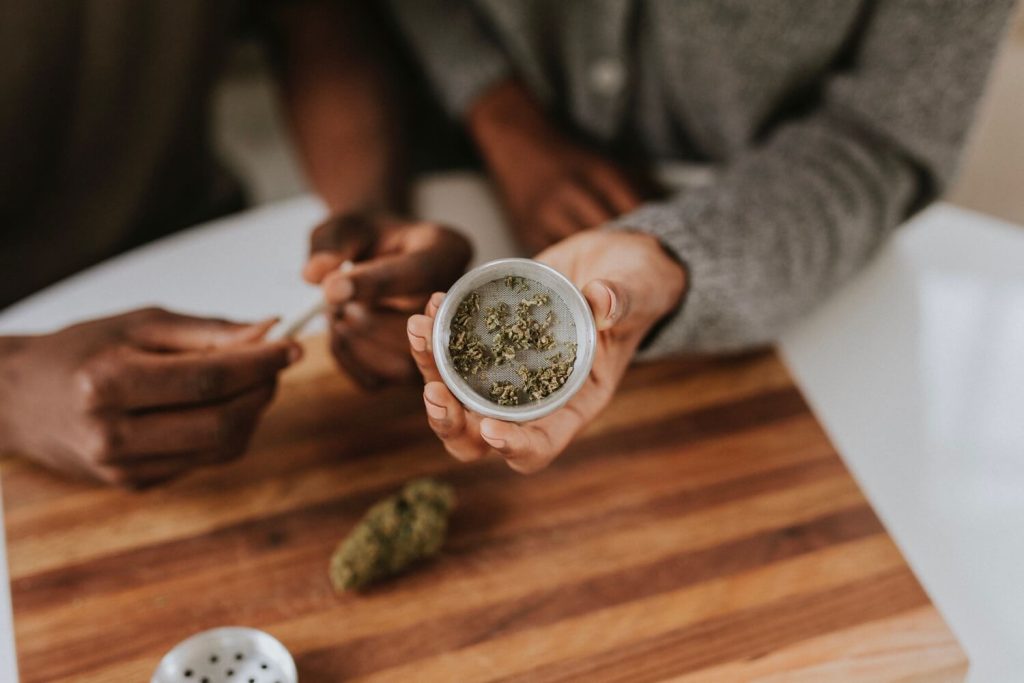
When it comes to medical marijuana, North Carolina residents are in a holding pattern.
The state’s effort to create a medical marijuana program, also known as Senate Bill 3 or the Compassionate Care Act, has been stalled for years. Although it has twice passed the NC state senate, it remains stuck in the house until the next legislative session begins in 2024.
Eager to sign on as soon as it launches? We’ve got the scoop on what you can expect from North Carolina’s potential medical marijuana program, including possible requirements and how to apply.
In the meantime, there are some other surprising recent developments we think you should know about.
Let’s dive in.
Presently, more than two-thirds of states across the US have implemented their own medical marijuana programs. Some states have taken it a step further and pushed for legalization — allowing recreational use for adults 21 and older.
Unfortunately, North Carolina does not have a medical marijuana program in place at this time.
But it’s clear that the state is feeling the pressure to adapt. Many who hope to benefit from medical cannabis in the state are optimistic. There may be promise that 2024 could be the year SB3 makes it through all the necessary channels, and becomes law.
And in the meantime? There’s another option.
The Eastern Band of the Cherokee Nation recently launched a medical marijuana program of their own, and North Carolina residents are welcome to apply. We’ll get into the details later in the article.
But before we do, let’s go over SB3.
Since it has yet to pass and become law, it’s important to note some of these conditions and processes may be subject to change. With that in mind, here’s a snapshot of what everyone who’s hoping to become an early adopter needs to know.
The program will be open to people who are 18 years of age or older who have been diagnosed with a qualifying medical condition.
Younger patients can join, too, as long as they designate a caregiver – typically either a parent or legal guardian.
When it comes time to sign up, here’s what you can likely expect:
Almost every state medical marijuana program has a list of medical diagnoses that qualify a person to use medical cannabis. The proposed bill, SB3, indicates that North Carolina will do the same.
Anyone who has been diagnosed with one or more of those conditions meets the criteria to sign up for the program. However, they will also need to get a formal recommendation from a marijuana doctor.
In order to qualify as a marijuana doctor in North Carolina, SB3 states that a state-licensed physician will need to complete a 10-hour training course. After finishing the course, they can begin issuing medical marijuana recommendations.
Individuals who want to join the medical cannabis program must get a recommendation from a licensed cannabis doctor before they can register.
Once a doctor has evaluated the patient and issued a medical marijuana recommendation, the patient can register for the program through an online portal. The North Carolina Department of Health and Human Services will operate the portal.
Next, the patient will probably need to furnish some supporting documentation. Supporting documentation may include a valid government-issued state ID card, such as a driver’s license, as well as proof of address.
Patients may also need to provide an ID-style photo of their face, which will be used on their North Carolina medical marijuana card.
Qualifying patients who are too sick to sign up for the program on their own, or who are unable to travel to a medical cannabis dispensary, can designate a caregiver to act on their behalf.
Under SB3, a designated caregiver must be 21 years of age or older. They must also register with the state, and will receive an ID card that grants them the authority to buy and transport medical marijuana in accordance with guidelines outlined by the program.
Medical marijuana patients and their caregivers are expected to carry their medical cannabis cards with them at all times, and provide them to law enforcement upon request.
You Might Like: Which States Offer Medical Cannabis for Mental Health Conditions?

Below is a list of the medical diagnoses that North Carolina is likely to approve as qualifying conditions for medical marijuana, should SB3 become law:
If you’re suffering from a physical or mental ailment but don’t have an official diagnosis yet, use this time to schedule a visit with a physician.
After evaluating you, they may be able to diagnose your condition and provide you with the supporting documentation — such as medical records — which you can bring to your appointment with a cannabis doctor when the time comes.
The easiest way to find a doctor who can evaluate you for medical marijuana is to use an online cannabis doctor directory, such as Marijuana Doctors. Marijuana Doctors provides a comprehensive list of local physicians who have experience using medical marijuana to treat patients.
You can use the website to read other patients’ reviews, book an appointment, and find the closest medical marijuana dispensary in your area.
As mentioned earlier, not every doctor will be licensed to issue a medical marijuana recommendation.
If North Carolina passes SB3 and legalizes medical marijuana, it’s expected that doctors will need to undergo a 10-hour course before they can recommend it to patients.
Medical professionals must also hold a current medical license that is valid in the state.
That means that unless your current doctor meets the above criteria, they may not be able to issue a recommendation for medical marijuana. That’s why sites like Marijuana Doctors can be an invaluable resource for new and returning medical cannabis patients.
In 2018, the federal government removed hemp and hemp-derived products from its list of controlled substances, making any cannabinoid with a THC concentration of 0.3% or less legal at the federal level.
A few years later, North Carolina updated their hemp laws to align them with the new federal regulations.
For that reason, North Carolina residents can now access a limited number of cannabis products.
For example, it is legal to purchase Delta-8, which is a cannabinoid found in the hemp and cannabis plants that is similar to Delta-9. Delta-9 is the chemical that most people think of when they think of marijuana.
Like Delta-9, Delta-8 produces a high, although it is less potent and has a different chemical structure.
It is artificially created through a process known as isomerization, which converts the CBD or Delta-9 THC found in hemp. People report feeling relaxed or mildly euphoric after using Delta-8. In some instances, it can reportedly provide pain relief.
Consumers can buy Delta-8 in several forms, including vape cartridges, edibles, pre-rolls, and concentrates. Only a few North Carolina brick-and-mortar retailers sell Delta-8. Most Delta-8 sales transactions are done online.
Read About: CBD and Antibiotics: Exploring Safe Use

In 2021, the Eastern Band of Cherokee Indians (EBCI) Tribal Council voted to launch its own medical marijuana program.
The program they put in place follows a similar protocol to that of state-run medical cannabis programs: prospective patients must be diagnosed with a qualifying medical condition, and a doctor must confirm the diagnosis.
The waitlist has ended, which means the program is now open to both EBCI members and North Carolina residents who are 21 or older.
For those who are eager to sign up for medical marijuana treatment, here’s a quick overview of the EBCI’s entire process.
Each applicant must provide an attestation form from a doctor to confirm that they have been diagnosed with one or more of the following qualifying conditions.
Those conditions are:
Any licensed physician can fill out the attestation form. It’s intended as proof of illness, rather than a medical marijuana recommendation.
Joining the program costs $100 for North Carolina residents and $50 for EBCI members. The annual renewal fee is $100 for NC residents and $25 for EBCI members.
Each program participant will be issued an identification card.
To sign up, you’ll need to provide:
Anyone who needs the help of a designated caregiver must provide a signed Healthcare Power of Attorney document.
Once you have the necessary documents, you can apply online.
The program is only upheld in western North Carolina within the boundaries of Tribal Land. This includes the 57,000 acres that make up the Qualla Boundary, which contains Hayward, Swain, and Jackson Counties, as well as other trust lands belonging to the Tribe.
It is important to note that anything bought and transported beyond the boundaries of tribal land is subject to enforcement by North Carolina State Law.
On the surface, each tribe has the authority to establish its own rules and regulations within the boundaries of tribal land.
Yet, it’s a little more complex. For example, in the case of major crimes, or instances where the United States is involved such as voting rights and social security, federal law prevails.
Currently, North Carolina’s stance on marijuana mimics federal law.
Cannabis derivatives and CBD that contain less than 0.3% THC concentration are allowed. Marijuana products with a higher concentration of THC are illegal.
Possession of 1.5 ounces of marijuana or less is a misdemeanor, while possessing more than that amount – including 0.05 of an ounce of resin or a synthetic version of THC – can result in a felony charge for possession.
Trafficking more than 10 pounds of marijuana, as well as home-growing your own marijuana, are both felonies. The severity of the charge depends on the amount of marijuana in question.
Conclusion:
Though progress may be slow, the push for medical marijuana legislation continues to move forward. We hope this article has broadened your knowledge of what to expect if or when North Carolina finally implements its medical marijuana program.
Remember that cannabis laws are always changing. When in doubt, consult your local government authority to verify the current status.